Haley Weidenbaum, now co-founder with her husband Adam Weidenbaum of window-covering company Everhem, got her start in interior design back in 2011. She enrolled in a certification program on the topic through UCLA’s extension program, and a year and a half later, she was ready to take on business.
That’s when Haley discovered Homepolish, the home-design startup that connected interior designers with clients. Haley worked as an interior designer with Homepolish for about six years. The company, which raised $20 million in funding in 2016, shuttered in 2019 after revealing it had run out of capital.
Haley’s experience with Homepolish gave her a firsthand look at what could happen when a startup grows too fast. The work also helped lay the foundation for her and Adam to launch an interior-design-related business of their own — using a slow-and-steady approach to do it.
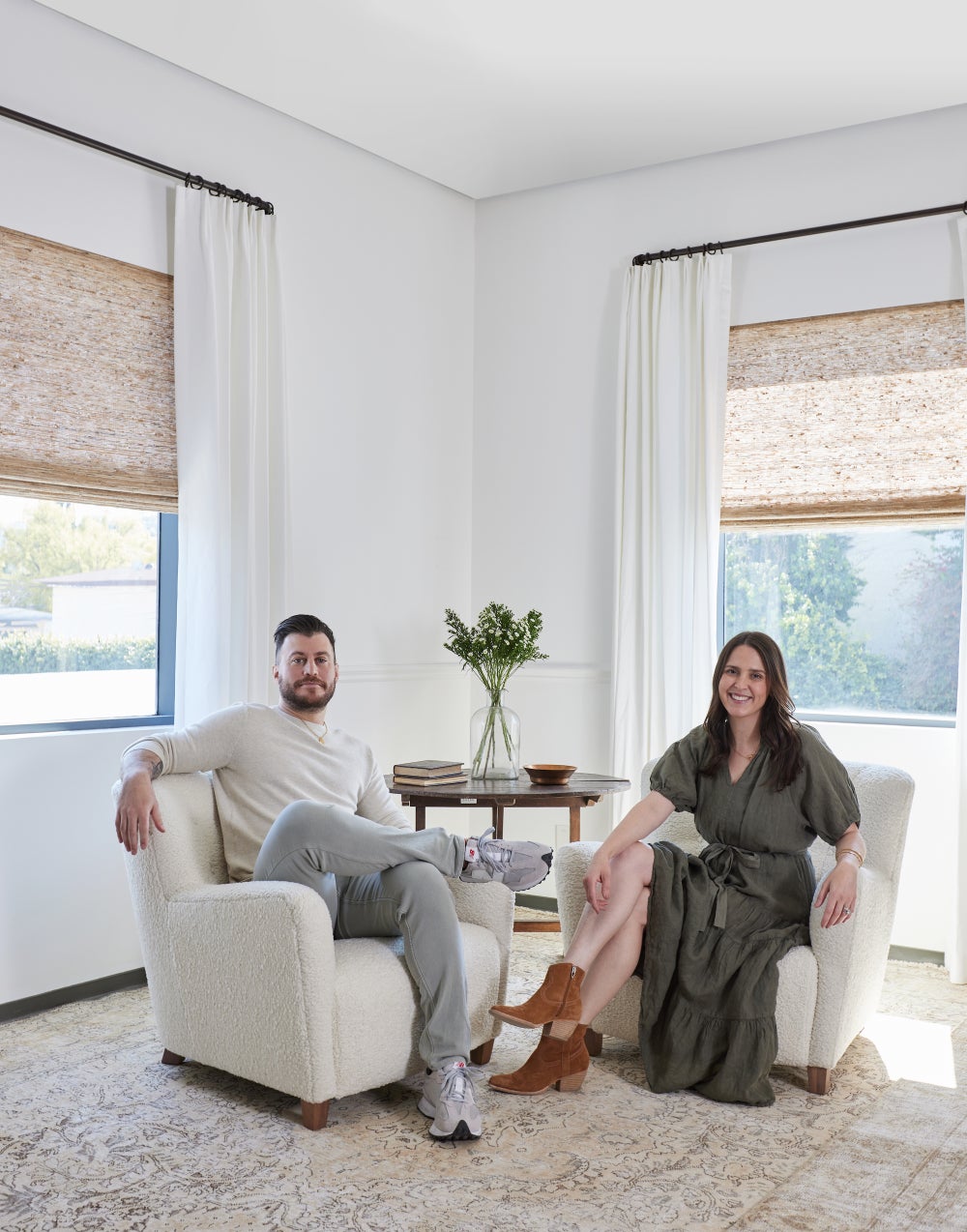
Image Credit: Courtesy of Everhem. Adam and Haley Weidenbaum.
“At the time, window treatment was the hardest part of my job,” Haley tells Entrepreneur. “I couldn’t find the right company to execute the designs I wanted. The quality wasn’t great. The customer service at all the companies I tried was really poor. I just wanted to do it better. Offering exceptional, memorable experiences has always been my favorite thing to do as an interior designer.”
Adam, a graphic designer with a professional background in finance, was an ideal co-founder to help make the vision a reality. When Haley approached him about her idea for Everhem, Adam was working at a digital media agency where he focused on branding — and he was ready for a change.
“I knew enough to know not to doubt Haley at that point,” Adam says. “When she comes up with something, it’s usually going to happen. So I said, ‘Sure, let’s do this.'” Adam learned all he could about window treatments, built out the company’s economic models and got to work on brand identity. One of the most important first steps was coming up with their new business’s name.
“We wanted to come up with a name that wasn’t specifically focused on window treatment per se because we didn’t know what the future of the business might hold,” Adam recalls. “Maybe we would get into another vertical or multiple other verticals. And then if we’re pigeonholed into something to do with windows, it’s not going to make sense to people.”
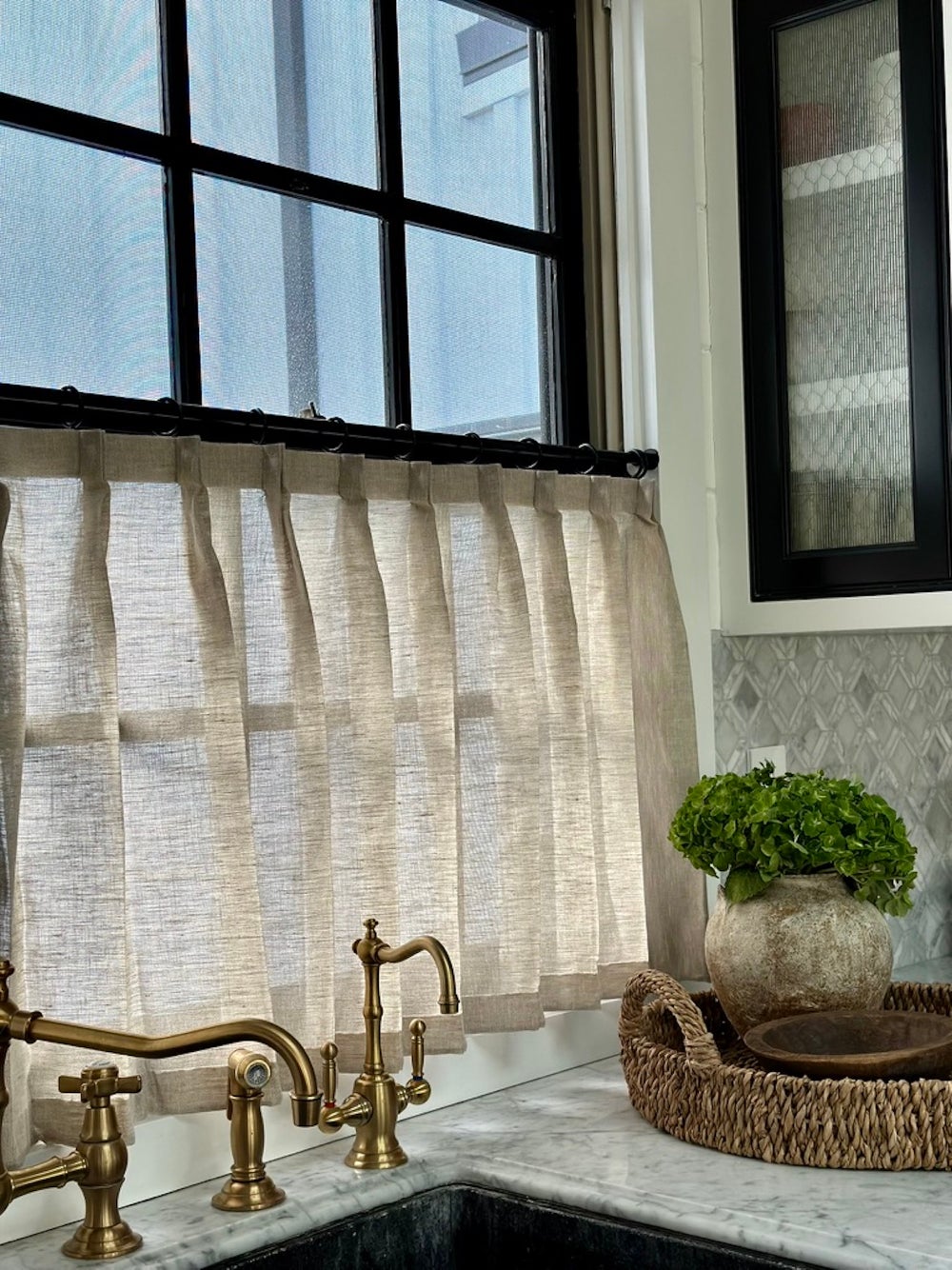
Image Credit: Courtesy of Everhem
“It had this double entendre. It’s Swedish for home, and all of our products are going to be hand-sewn.”
The wheels started to turn after the couple watched an episode of Abstract: The Art of Design, a Netflix documentary about creatives, that featured the British interior designer Ilse Crawford. Shortly before they launched the business, the Weidenbaums took a trip to Stockholm, Sweden, where they stayed at The Ett Hem Hotel, which Crawford designed.
”We were very inspired by it,” Adam says. “[It was] completely our vibe. We learned that ‘hem’ is basically the Swedish word for ‘home,’ [and] we’ve always felt a connection to the hygge movement, the coziness. [‘Hem’] made a lot of sense. It had this double entendre. It’s Swedish for home, and all of our products are going to be hand-sewn. Then the ‘ever’ was added because it made sense too: This is for your forever home.”
Everhem’s typeface also draws inspiration from Crawford — it’s the same typeface used for the title of the designer’s book, A Frame for Life. It also happens to be called “Tarzana,” which is the name of the town where Haley grew up. It was a “full-circle” moment, the co-founders say.
“We wanted to bring the user experience online and elevate it.”
The Weidenbaums were wary of taking outside capital from the start. In those early days, they used their savings to self-fund the venture. Most of the money went to building a website and acquiring inventory. Embracing the slow-and-steady mentality, the co-founders didn’t expect a “huge boom” at the official August 2019 launch. The first organic order and month of sales were “exhilarating.”
”We entered an industry that’s been around for decades and decades,” Haley says, “so we weren’t really trying to reinvent the wheel [in terms of] what everyone else was doing [with] making custom window treatment. But we wanted to change the format of the customer service. We wanted to bring the user experience online and elevate it. Because that was a big issue for a lot of people.”
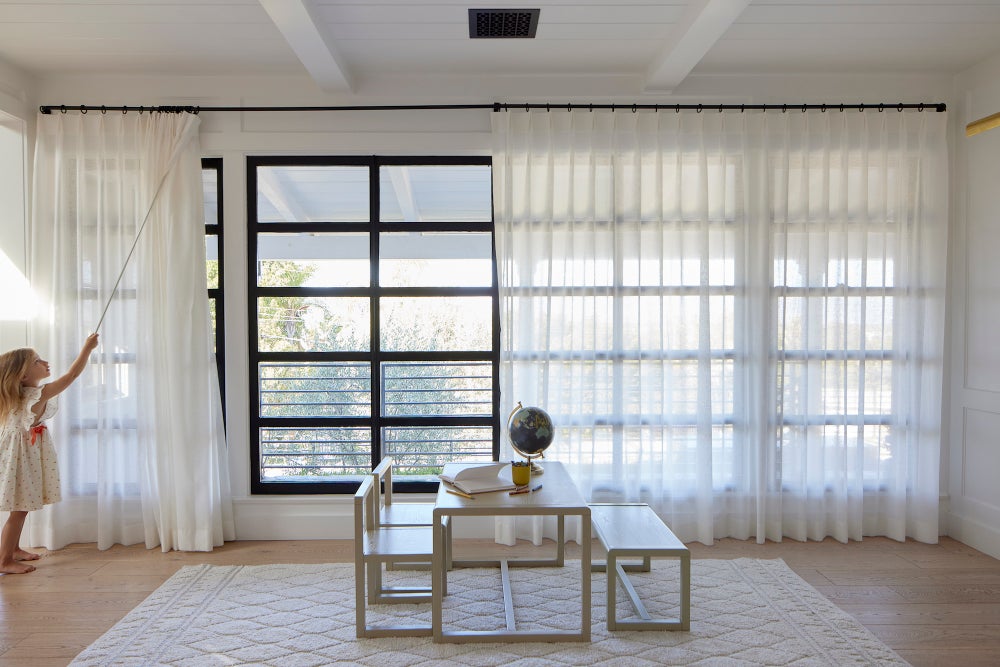
Image Credit: Courtesy of Everhem
Still, the Weidenbaums were cautious; unsure exactly how much business they’d have on their hands, they didn’t feel ready to pitch to investors.
During her time at Homepolish, Haley witnessed how an injection of outside capital could fundamentally alter a business’s operations — and not necessarily for the better. Homepolish tried to control a lot of the interior designers’ businesses in order to make money and meet investors’ ambitious expectations, the Weidenbaums note.
“ Our caution with looking at investors has always been, we don’t want to cede control of the destiny of the company too early and risk ruining it,” Adam explains. “It seemed like a smarter decision, at least at the beginning, to do it bootstrapped, let it be slow and see where it goes.”
That conservative approach to growth also extended to the company’s hiring. At the beginning of 2020, a couple of months into launch, the co-founders were still doing everything themselves. At that point, the Weidenbaums had one child and twins on the way, so they knew it was only a matter of time before they would need to bring on extra help. The couple hired their first team member a few weeks before the pandemic lockdowns.
”Of course, for a period of time [during the pandemic], everything essentially shut down [and we] couldn’t make anything,” Adam says. “[We were] basically bleeding capital. But we offered 30%-35% discounts across the board. Place your order now; we will fulfill it when we can. And that really worked.”
Like many businesses related to the home, Everhem saw an increase in demand amid the lockdowns, with more people stuck inside and eager to improve their living spaces. Then came a spate of organic influencer partnerships, which also helped the business level up. Everhem didn’t begin its paid marketing strategy until 2021.
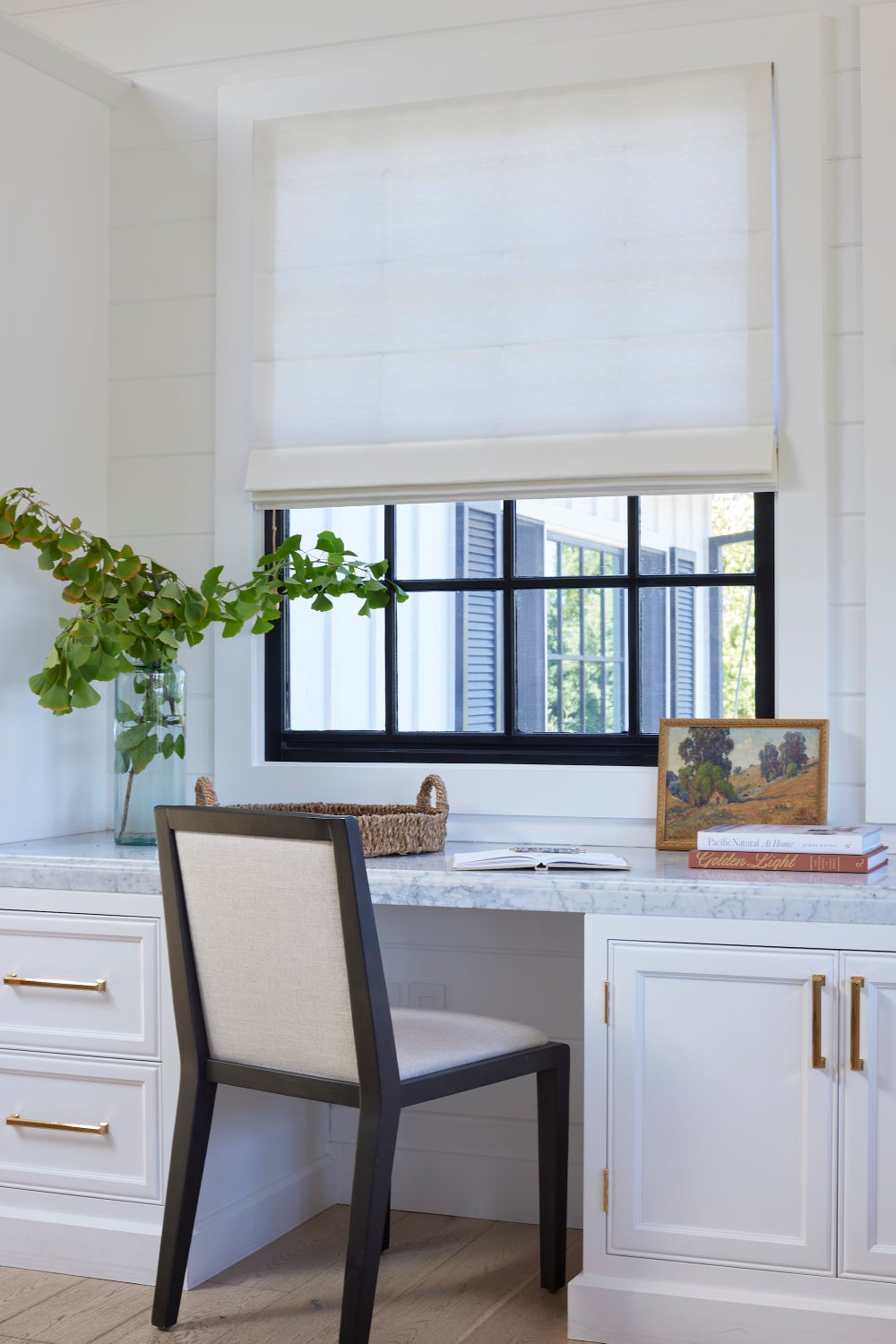
Image Credit: Courtesy of Everhem
Today, Everhem is a multimillion-dollar brand with a “small but mighty team” that helps it sustain its steady growth trajectory. Hiring — and making sure new team members are the right fit — remains one of the company’s most important and challenging objectives.
“You never really know when you hire someone if they’re going to work out or not,” Adam explains. “We’ve been extremely fortunate with some people who have become [essential]. I don’t think the business would run without them. But we’ve also had our share of hiccups.”
“We are here to change the perception of window treatment.”
Moving further into 2025, the co-founders are excited for continued growth and Everhem’s upcoming collaborations.
”Collaborating with designers has been a huge goal of ours,” Haley explains. “This allows us to stay in the realm of interior design always, making it obvious to our consumer base that’s at the forefront of every decision we make. We are here to change the perception of window treatment. It can be complicated and confusing, but it’s such an important aspect of interior design, and a lot of people don’t realize that.”
Everhem just launched its Matchstick Shades product with Annie Meyers-Shyer, who runs the Instagram account This Oak House. The company also recently announced a partnership with the artist Carly Kuhn to offer exclusive fabrics and patterns.
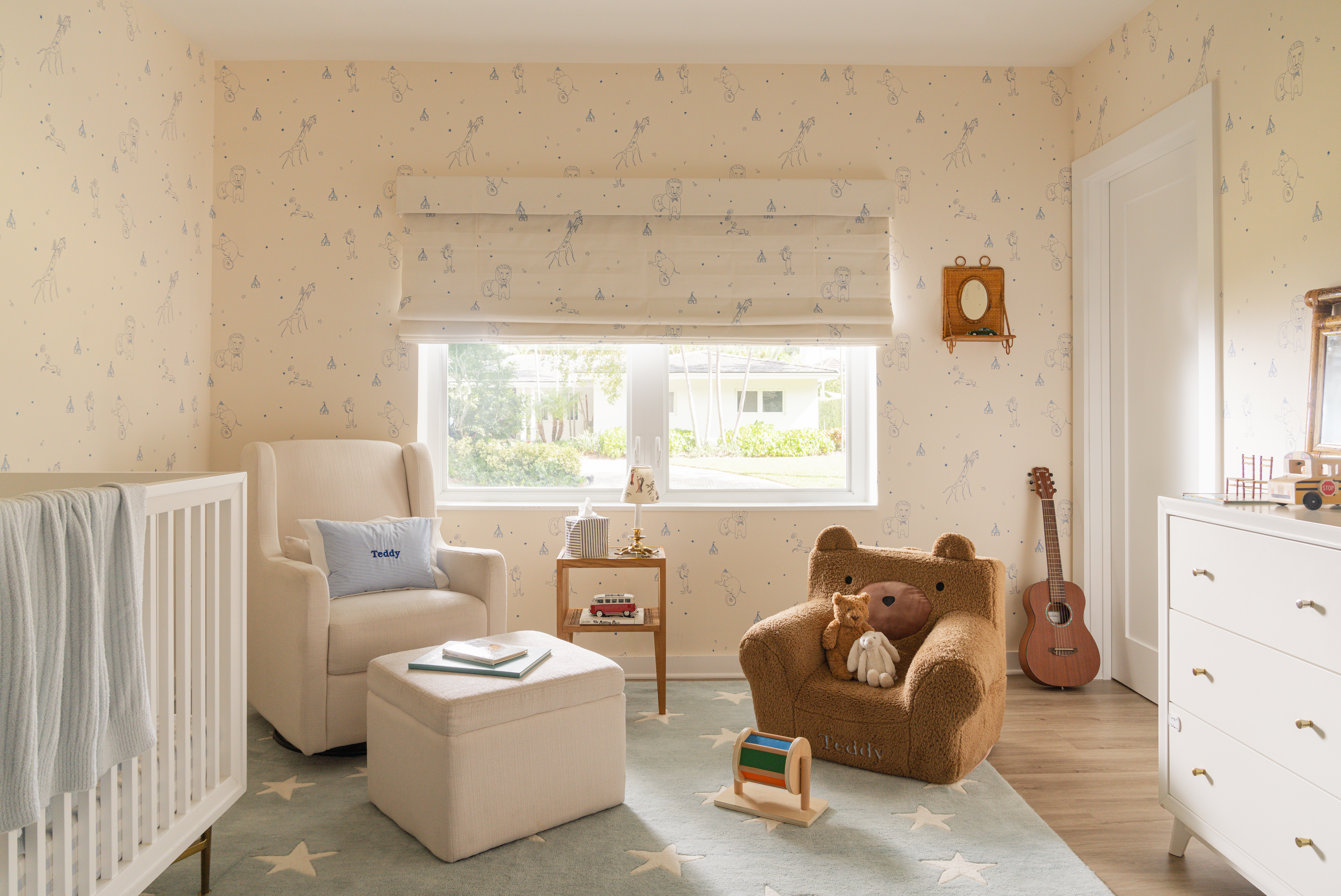 Image Credit: Courtesy of Everhem. From the Carly Kuhn collaboration.
Image Credit: Courtesy of Everhem. From the Carly Kuhn collaboration.
The co-founders have learned a lot over the years spent building Everhem, and one of their top pieces of advice for aspiring entrepreneurs hoping to start businesses of their own is straightforward but essential: Don’t look at revenue day by day — or even month by month.
“It can drive you nuts, especially when the economy is in flux,” Adam says.
Haley also stresses the importance of believing in your vision. “If you have an idea about launching a company or an idea of a product you want to launch in the company you’ve already founded, try it out,” Haley says. “Do it in a way that mitigates the risk as much as possible, but go with your gut and don’t doubt yourself.”


